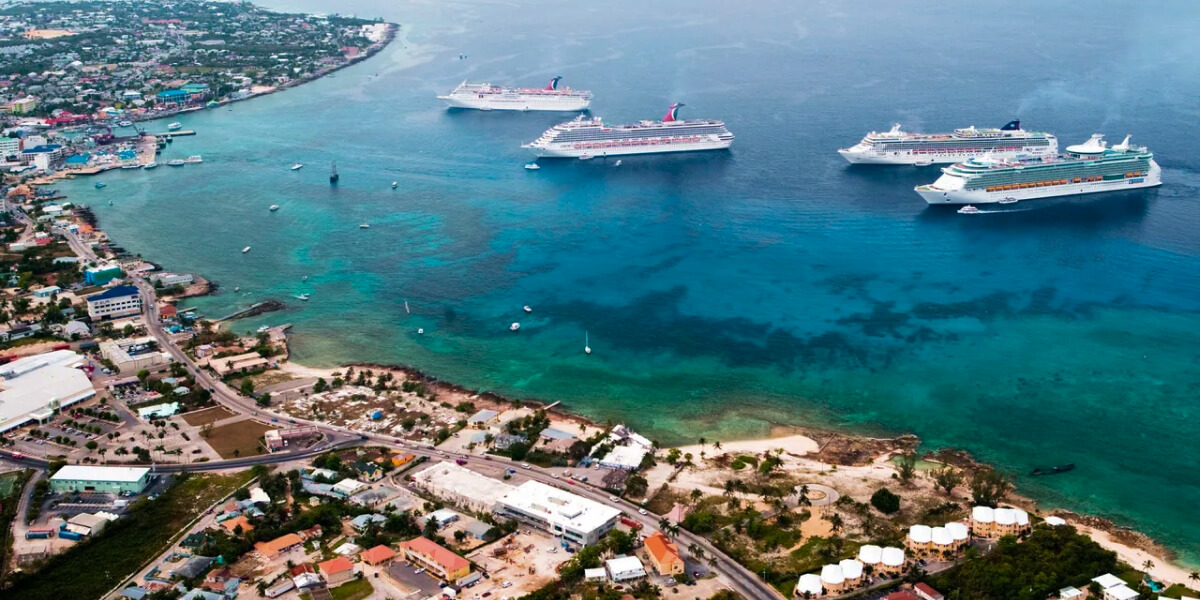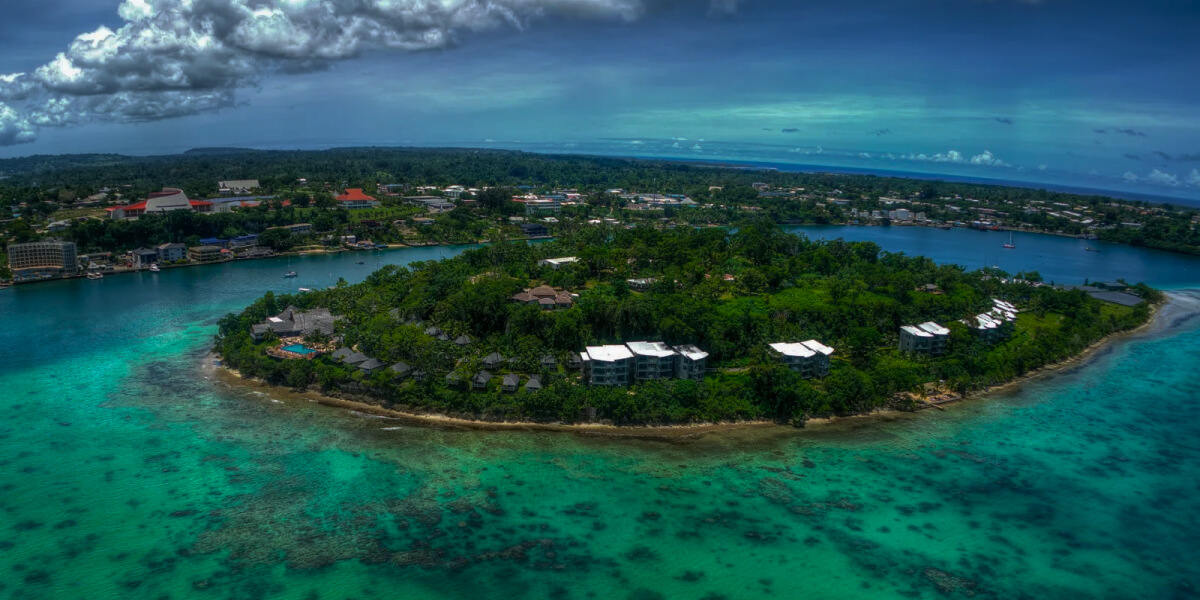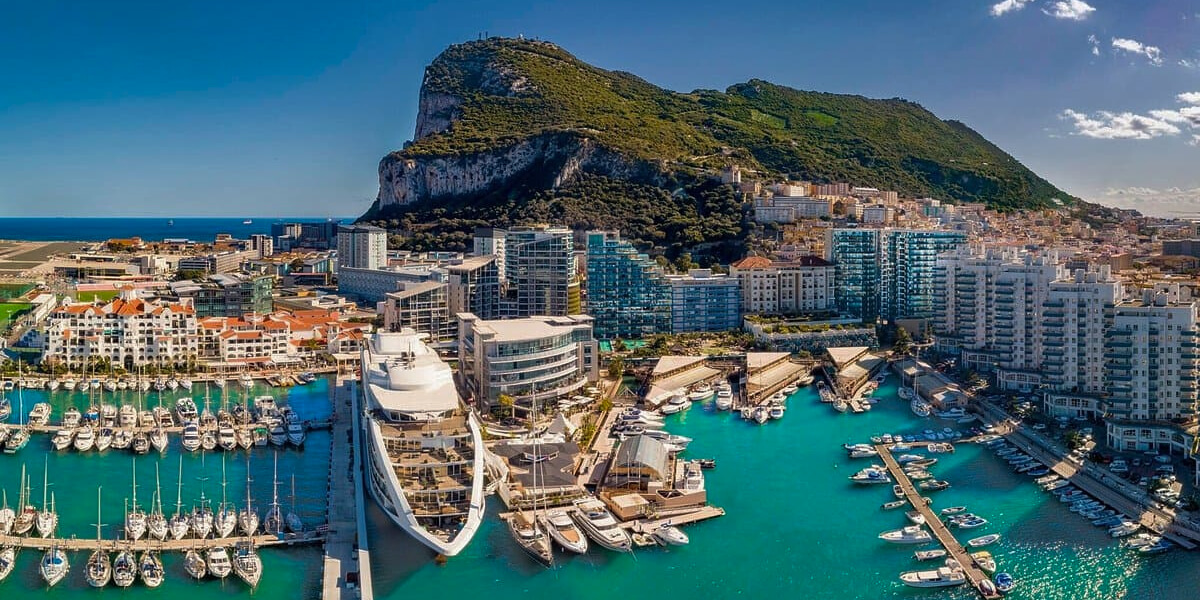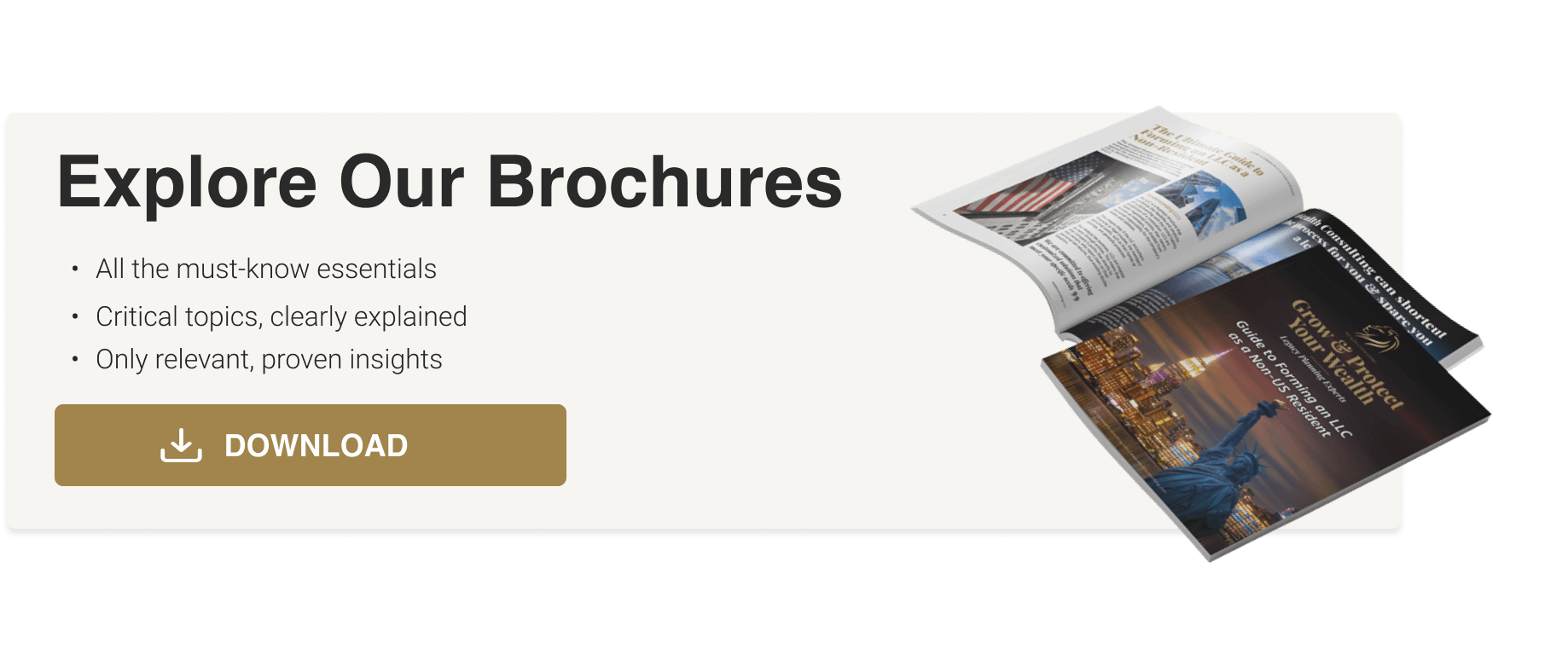
10 Best Low-Tax Countries for Entrepreneurs: Unlocking Opportunities in 2025
This guide highlights 10 of the most relevant low-tax countries for entrepreneurs in 2025.
We’ll cover:
-
Personal and corporate tax rates
-
How each country treats foreign or offshore income
-
Key legal and compliance rules
-
Practical pros and cons of setting up or relocating

✳︎ The goal is to help you make an informed decision that’s financially sound, legally secure, and built for the way global business works today.
Why Entrepreneurs Are Moving to Low-Tax Countries in 2025

For many entrepreneurs, where you’re taxed matters just as much as where you do business.
Here’s why:
-
Rising tax pressure in high-income countries.
Governments across the U.S., Europe, and parts of Asia are introducing new taxes on global income, digital assets, and corporate profits. This reduces how much founders can keep or reinvest. -
Stricter global reporting and transparency.
Agreements like the OECD’s global minimum tax and expanded automatic information exchange make it harder to stay flexible while operating from traditional high-tax jurisdictions. -
Better legal options elsewhere.
Many low-tax countries now offer clear business laws, fast incorporation, full foreign ownership, and access to international banking, without excessive tax costs. -
More location-independent businesses.
Online companies, freelancers, and investors no longer need to stay tied to their home country. A better jurisdiction can mean smoother cross-border operations and fewer tax complications.
What Makes a Country “Low-Tax”?

Not all low-tax countries work the same way. Some offer zero income tax. Others have low corporate rates, no capital gains tax, or flexible treatment of foreign income.
What matters is how the overall system fits your business model, income type, and long-term plans.
Here are the main categories you’ll come across:

No Personal Income Tax
Countries like the UAE, Monaco, and the Cayman Islands don’t charge personal income tax to residents. This can significantly increase take-home earnings, especially for founders paying themselves through dividends or salaries.

Low Corporate Tax
Places like Ireland or Singapore have moderate to low corporate tax rates (typically under 17%) but offer incentives for startups, R&D, or international income. These are often more sustainable for businesses that need physical presence and infrastructure.

Territorial Tax Systems
In jurisdictions like Hong Kong or Panama, foreign-sourced income isn’t taxed at all — only domestic profits are. This works well for companies serving international clients or earning revenue outside the country of incorporation.

Tax-Free for Offshore Entities
Some countries (like the British Virgin Islands or Seychelles) don’t tax offshore companies at all, as long as they don’t do business locally. These setups are often used for holding companies, IP management, or asset protection, though they may now require local substance or economic activity to remain compliant.

Flat Tax or Low Progressive Rates
Andorra and Georgia apply a flat or gently progressive income tax (around 10% or less). These options offer simplicity and predictability while still maintaining ties to Europe or established financial systems.
United Arab Emirates (UAE)

Key Tax Rates (2025)
|
Tax Type |
Rate & Threshold |
|---|---|
|
Personal Income Tax |
0% – No taxes on salaries, dividends, or capital gains |
|
Corporate Tax |
0% up to AED 375,000; 9% on profits above that |
|
Domestic Minimum Top-Up Tax |
15% for large MNEs (revenue ≥ €750 M) effective from Jan 1 2025 |
|
VAT |
5%, with exemptions for some sectors |
|
Excise Tax |
Applies to alcohol, tobacco, and energy drinks |
What’s Changed Recently
-
From June 1, 2023, a 9% corporate tax on profits above AED 375,000 was introduced
-
From Jan 1, 2025, a 15% domestic minimum top‑up tax (DMTT) applies to qualifying multinational enterprises to meet the OECD Pillar Two standard.
-
Cabinet decisions in early 2025 clarified tax treatment for partnerships, investment funds, and non-resident nexus rules.
What to Watch Out For
➞ Large MNEs face 15% DMTT: Multinationals earning over €750M globally must top up to 15%, even in free zones.
➞ Substance requirements: Free zone exemptions require real business presence (“economic substance”)—staff, office, activity.
➞ Compliance rules: Expect stricter reporting—audited financials (IFRS), transfer pricing, substance documentation .
➞ Setup costs: Licensing, office space, and free zone fees can total $4K–10K+ per year depending on the zone.
Singapore

Key Tax Rates & Updates
| Tax Type | Rate & Notes |
|---|---|
| Corporate Tax | 17% on chargeable income, with partial exemptions for SMEs and startups |
| Large MNE Top-Up Tax | 15% minimum effective rate starts Jan 1, 2025 for MNEs ≥ €750M (Pillar Two) |
| Personal Income Tax |
Progressive 0–24%, with a 60% rebate capped at S$200 for YA 2025 |
| GST (VAT) | 9%, applied since Jan 1, 2024 |
New Incentives & Relief
▸ Audit-start Tax Exemptions:
-
-
75% exemption on first S$10,000 profits, then 50% on next S$190,000
-
Startups benefit: 75% exemption on first S$100,000, then 50% on next S$100,000
-
▸ YA 2025 Rebate & Grant:
-
-
50% corporate tax rebate, up to S$40,000
-
Additional S$2,000 cash grant for employers with at least one local hire
-
▸ R&D & Innovation Deductions:
-
-
Up to 300% deduction on qualifying R&D (YA 2024–28)
-
New 15% concessionary tax tier for financial services under FSI scheme as of Feb 19, 2025
-
▸ Equity & Listing Support:
-
-
20% tax rebate for new primary listings, 10% for secondary
-
What to Keep in Mind
-
Pillar Two top-up: Large MNEs must meet the 15% minimum; smaller companies aren’t affected.
-
Substance rules: Incentives often require real operations, presence, and staff.
-
GST applies to all consumption and is a cost for local customers; exported services are generally zero-rated.
-
Compliance burden: Annual filings, audits for larger firms, and record-keeping for R&D claims.
Hong Kong

Key Tax Rates & Updates
| Tax Type |
Rate & Notes |
|---|---|
| Corporate Tax | 8.25% on first HKD 2 million profits; 16.5% above that |
| Personal Income Tax |
2–17%, capped at 15% of net assessable income |
| Capital Gains Tax | 0% — gains from asset disposals generally not taxed |
| Territorial System | Only Hong Kong–sourced income is taxed; foreign-source income may be exempt if substance rules are met |
| GST / VAT | None – no general consumption tax |
2025 Pillar Two & Tax Relief Updates
-
Global Minimum Top‑Up Tax (HKMTT) effective Jan 1, 2025. MNEs with global revenues ≥ €750M must meet a 15% effective tax rate via IIR or HKMTT.
-
2024–25 tax relief: A one-off 100% reduction in profits tax and salaries tax for assessment year 2024–25, capped at HKD 1,500 per case
Points to Watch
/01
Pillar Two compliance:
Large MNEs must file HKMTT/IIR returns and may owe top-up tax.
/02
Substance rules apply:
Overseas income exemptions require genuine operational presence.
/03
Temporary relief only:
The 2024–25 tax waiver capped at HKD 1,500 is a short-term measure.
/04
Rising revenue pressure:
Economic strain in property markets might lead to future tax changes.
Cayman Islands

Tax Landscape
| Tax Type | Rate & Notes |
|---|---|
| Personal Income Tax | 0% — No tax on salaries, dividends, capital gains |
| Corporate Tax | 0% — Both local and foreign companies face no corporate tax |
| Capital Gains Tax | 0% — No taxation on asset sales |
| Withholding Tax | 0% — Free movements of dividends, interest, royalties |
| Indirect Taxes | No VAT; import duties ~22–27%; stamp duties apply to property and share transfers |
| Fees |
Annual license and registry fees; fees increased effective Jan 1, 2025 |
What’s New in 2025
-
Annual fee increases: Registry and financial license fees climbed in early 2025.
-
Virtual asset provider regulation: New phase of VASP rules came into effect in Q2 2025.
-
Beneficial ownership transparency: Reporting enhanced to align with global standards.
Things to Watch
➞ Substance rules: OECD Pillar Two soon applies via local top-up taxes for MNEs earning €750M+, even in zero-tax jurisdictions.
➞ An evolving regulatory environment: Enhanced AML/CFT, VASP regulation, and ownership disclosure mean compliance is growing heavier .
➞ Indirect costs: Import duties and registry fees add to operating costs, offset by low tax but essential to budget for.
Monaco

Tax Overview
| Tax Type |
Rate & Notes |
|---|---|
| Personal Income Tax |
0% — No income tax for residents, except French nationals under a bilateral agreement (service-public.fr, frenchgovernment.com) |
| Corporate Tax | 0% if ≥ 25% of turnover is within Monaco; 33.33% otherwise (kpmg.com) |
| Capital Gains Tax | 0% on personal asset sales unless from property or corporate shareholdings (~33.33% in those cases) (kpmg.com) |
| Value‑Added Tax (VAT) | 20% standard VAT rate, inline with EU norms (kpmg.com) |
2025 Updates & Highlights
-
No personal income tax remains the norm; French nationals continue to be taxed per France‑Monaco treaty.
-
Corporate tax threshold clarified: Companies deriving 25%+ turnover locally pay no corporate tax; others pay the full 33.33%.
-
VAT unchanged, keeping consumption taxes aligned with France.
-
Residency law tweaks: From early 2025, spending more than 90 days in Monaco qualifies for tax residency, tightening entry requirements.
Points to Consider
➞ French national caveat: If you're a French citizen, Monaco doesn’t shelter you from income tax.
➞ High corporate VAT: At 20%, business expenses and consumer-facing firms must factor in higher costs.
➞ Costly lifestyle: Real estate prices and the cost of living are among the highest in Europe.
➞ Substance and residency rules: To qualify for zero corporate tax, having local operations and staff may be required.
British Virgin Islands (BVI)

Tax & Regulatory Overview
| Tax Type |
Rate & Notes |
|---|---|
| Personal/Corporate Tax | 0% — No income, capital gains, corporation, wealth, gift or sales tax |
| Payroll Tax | Employee 8% (on income > US$10K); Employer 10–14% based on size |
| Imports & Stamp Duty | Customs duties, land/stamp taxes on property and share transfers |
| Annual Corporate Fees | Yearly registration & license fees; due by June/December depending on FYE |
New Requirements in 2025
-
Economic Substance rules tightened: In-scope companies must file substance reports annually (within 6 months post‑FYE) to keep zero-tax status.
-
Beneficial ownership updates: From Jan 2, 2025, most ownership info moves to private BVI registry; access only for authorities.
-
Annual return deadlines enforced: Extensions end 30 June 2025; late filings trigger registrar notifications.
What to Watch
➞ Stringent substance rules: Must demonstrate real employees, office, and operations depending on activity.
➞ Payroll tax hits local hires: Employees pay 8%, employers up to 14% .
➞ Fee and filing pressures: Missing deadlines brings notifications and possible penalties; registry fees aren’t negligible.
➞ Transparency concerns: UK pressure mounts—BVI criticized for slow public beneficial‑ownership registry rollout.
Seychelles

Key Tax & Structure Overview
| Tax Type | Rate & Notes |
|---|---|
| Corporate Tax (IBCs) | 0% on foreign-sourced income for International Business Companies (IBCs) |
| Corporate Tax (Local) | 25% on first SCR 1 million; 33% above that for Seychelles-sourced income |
| Personal Income Tax | Not applicable to IBCs; local employment income may be taxed separately |
| Capital Gains Tax | 0% – No capital gains tax for IBCs |
| Withholding Tax | 0% – No WHT on dividends, interest, or royalties paid by IBCs |
| VAT (Local businesses) | 15%, applies only to locally consumed goods and services |
| Annual IBC License Fee | USD 140 (approx.), no minimum capital required |
New & Updated Rules
-
Economic Substance Act (2020) now requires IBCs earning passive foreign income or belonging to multinational groups to demonstrate real business activity in Seychelles.
-
Beneficial Ownership Register must be maintained by licensed agents and reported to Seychelles Financial Intelligence Unit; not publicly accessible.
-
VASP licensing launched in April 2025, virtual asset firms must have a physical office, local directors, and substance to operate legally
Points to Consider
➞ Substance requirements apply if you earn passive income or operate in specified sectors, compliance is essential.
➞ Limited local banking options, offshore bank accounts may carry compliance flags and higher fees.
➞ Local taxable activities taxed at 25–33% — ensure your IBC stays strictly offshore if you want zero tax.
➞ Strict VASP rules for crypto and digital asset companies, substance requirements include office space and local directors
Vanuatu

Key Tax & Structure Overview
|
Tax Type |
Rate & Notes |
|---|---|
|
Personal & Corporate Tax |
0% — No income, corporate, capital gains, wealth, inheritance taxes for individuals and IBCs |
|
Capital Gains Tax |
0% — No tax on asset sales |
|
Withholding Tax |
0% — Dividends, interest, royalties free of tax |
|
VAT |
12.5% on goods and services; included in prices, managed via new monitoring system |
|
Registration Fee (IBC) |
Typically USD 300–1,000/year |
|
Stamp Duty / Customs |
2–5% on property transfers, imports; rental income taxed at 12.5% above threshold |
2025 Highlights
-
Zero tax across the board for international and local offshore companies, guaranteed up to 20 years under the International Companies Act.
-
New Sales Monitoring System rolled out mid‑2025 to improve VAT collection and compliance.
-
Economic transparency efforts: Vanuatu complies with AEOI/CRS standards; banks now require due diligence, though banking remains available.
What to Watch
➞ VAT compliance is tightening due to the new monitoring systems .
➞ Banking options limited: Local and international banks exist, but may apply enhanced KYC and due diligence standards.
➞ No double tax treaties – offshore income may still face tax in destination countries.
➞ Possible future tax changes: A 17% corporate tax has been proposed by a revenue review committee, though no changes are decided yet.
Gibraltar

Key Tax Rates & Structure
|
Tax Type |
Rate & Notes |
|---|---|
|
Corporate Tax |
15% on Gibraltar-sourced profits (raised from 12.5% effective July 1, 2024); utilities pay 20% |
|
Personal Income Tax |
Progressive; two systems (ABS/GIBS) with top marginal rates ~28–39% under allowances, ~26% cap |
|
Capital Gains Tax |
0% — no tax on asset gains |
|
VAT / Sales Tax |
No VAT; new “transaction tax” phased in: 15% in Year 1, rising to 17% by Year 3 to align with EU rules |
|
Withholding Taxes |
0% on dividends, interest, and royalties |
|
Import Duties & Excise |
Varies (~10% on most imports; standard excise on tobacco, alcohol, fuel) |
2025 Updates & Highlights
-
Corporate tax officially rose to 15% from July 2024; utility firms still taxed at 20%.
-
Global Minimum/Top‑Up Tax (Pillar Two) adopted via a 2024 Act, implementing a 15% effective minimum rate starting FY 2024.
-
Transaction tax to replace VAT: starting at 15% in Year 1, with alignment to EU VAT standards by Year 3.
-
Anti‑avoidance legislation strengthened via April 2025 amendments to target aggressive tax planning.
-
Post‑Brexit EU deal: Schengen border integration and phased transaction tax help unlock access to the EU market .
Points to Consider
➞ Corporate tax increased to 15%, with additional burden for utility sectors.
➞ Transaction tax adoption will affect imported or sold goods starting mid‑2025.
➞ Anti-avoidance rules may impact profit extraction strategies or inter-company arrangements.
➞ Two personal tax systems: income drawn personally may face significant marginal rates.
➞ Compliance burden: social insurance caps, transaction tax implementation, and Pillar Two reporting add complexity.
Andorra

Tax Snapshot
|
Tax Type |
Rate & Notes |
|---|---|
|
Corporate Tax |
2%–10% progressive scale; standard rate is 10% (pwc.com) |
|
Personal Income Tax |
0%–10% across bands; maximum rate is 10% (pwc.com) |
|
VAT (IGI) |
4.5%, one of Europe’s lowest indirect taxes (pwc.com) |
|
Capital Gains Tax |
0% for most asset types; small rate for real estate gains holds, typically <10% |
|
Wealth & Inheritance Tax |
0% — no wealth, inheritance, or gift taxes in Andorra |
2025 Developments
-
Corporate bracket fine-tuned: 10% is standard; lower effective rates (2–5%) apply to startups and small enterprises.
-
Digital nomad-friendly regime: New special permit with stable 10% personal tax for remote workers, valid for 3+ year stay.
-
Residency via investment: Enhanced Golden Visa program requires minimum €400,000 investment across real estate or business, granting full tax access and a pathway to citizenship.
Things to Consider
➞ Foreign-sourced income may be taxable if not covered by exceptions; planning required.
➞ Local presence required for most benefits—residency includes physical presence, licensing, and possible investment.
➞ High living costs: Mountain housing, imported goods, and insurance add to personal expenses.
➞ Residency by investment may require significant capital (min. €400k across approved assets).
Why Entrepreneurs Benefit from Moving to Low-Tax Countries

/01
Keep More of What You Earn
In high-tax countries, entrepreneurs often give up 40% or more of their profits through income, dividend, and capital gains taxes. In contrast, low-tax jurisdictions offer:
-
0–10% personal income tax in many cases (UAE, Monaco, Andorra)
-
Zero tax on dividends and capital gains in places like Hong Kong, BVI, or Vanuatu
-
Corporate tax reliefs or exemptions for smaller companies or free zone entities
/02
Lower Operating Costs for Global Structures
Running international operations from a tax-friendly country simplifies the way profits are moved, reported, and reinvested:
-
No withholding taxes on dividends or royalties in many jurisdictions
-
Simplified company structures reduce the need for costly intermediaries or holding companies
-
Double taxation treaties (UAE, Singapore, Andorra) help avoid being taxed twice on the same income
/03
More Predictable Compliance
Many low-tax countries offer clear, flat-rate systems with fewer deductions and surprises:
-
Low headline rates with minimal exemptions (e.g., 10% in Andorra, 9% UAE mainland)
-
Fixed annual license fees instead of fluctuating corporate taxes (e.g., BVI, Seychelles)
-
Transparent substance rules that are easier to meet than complex OECD frameworks elsewhere
/04
Legal and Financial Flexibility
Low-tax jurisdictions often align their business regulations with international standards, while staying flexible enough for founders who want control:
-
Full foreign ownership in places like UAE, Gibraltar, and Singapore
-
Fast incorporation and bank setup — often within days or weeks
-
Crypto and fintech-friendly policies in places like Seychelles, Vanuatu, and Gibraltar
/05
Personal and Lifestyle Perks
Lastly, many of these countries offer strong lifestyle incentives alongside tax efficiency:
-
Residency by investment or relocation visas (Monaco, Andorra, Vanuatu)
-
Quality healthcare, safety, and infrastructure in compact, stable environments
-
Ease of travel via visa-free access or EU/Schengen proximity (Gibraltar, Andorra)
Challenges of Operating in Low-Tax Countries


Substance Requirements
To keep tax benefits, many countries now require real presence, like local staff, offices, or active operations.

Compliance & Reporting
Even with low taxes, rules are strict. You’ll still need proper bookkeeping, filings, and sometimes audits, especially under global standards like Pillar Two.

Banking & Payment Hurdles
Some offshore or smaller jurisdictions have limited banking access or face extra scrutiny from international banks.

Cultural & Legal Differences
Setting up abroad means dealing with new systems, languages, and legal frameworks, things can move slower than expected.

Setup Costs
While taxes are low, initial costs for licenses, visas, and legal help can add up, especially in places like Monaco or the UAE.
FAQs

▸ Is it legal to move my business to a low-tax country?
Yes, as long as you follow local laws and international reporting rules (like substance requirements and tax treaties), it’s fully legal.
▸ Do I have to live there full-time to get tax benefits?
Not always. Some countries offer tax advantages through company setup alone, while others require physical presence or minimum days spent per year.
▸ Can I still bank internationally from these countries?
Yes, but banks may ask for more documentation. Some smaller jurisdictions may have limited banking options, so it’s key to choose carefully.
▸ Will I pay tax in my home country after moving?
It depends on your citizenship and whether you’ve officially changed tax residency. U.S. citizens, for example, are taxed globally.
▸ What kind of businesses benefit the most from low-tax countries?
Digital services, consulting, e-commerce, asset holding, and international trading companies tend to benefit most, especially if their clients are abroad.
Contents
- Why Entrepreneurs Are Moving to Low-Tax Countries in 2025
- What Makes a Country “Low-Tax”?
- United Arab Emirates (UAE)
- Singapore
- Hong Kong
- Cayman Islands
- Monaco
- British Virgin Islands (BVI)
- Seychelles
- Vanuatu
- Gibraltar
- Andorra
- Why Entrepreneurs Benefit from Moving to Low-Tax Countries
- Challenges of Operating in Low-Tax Countries
- FAQs




